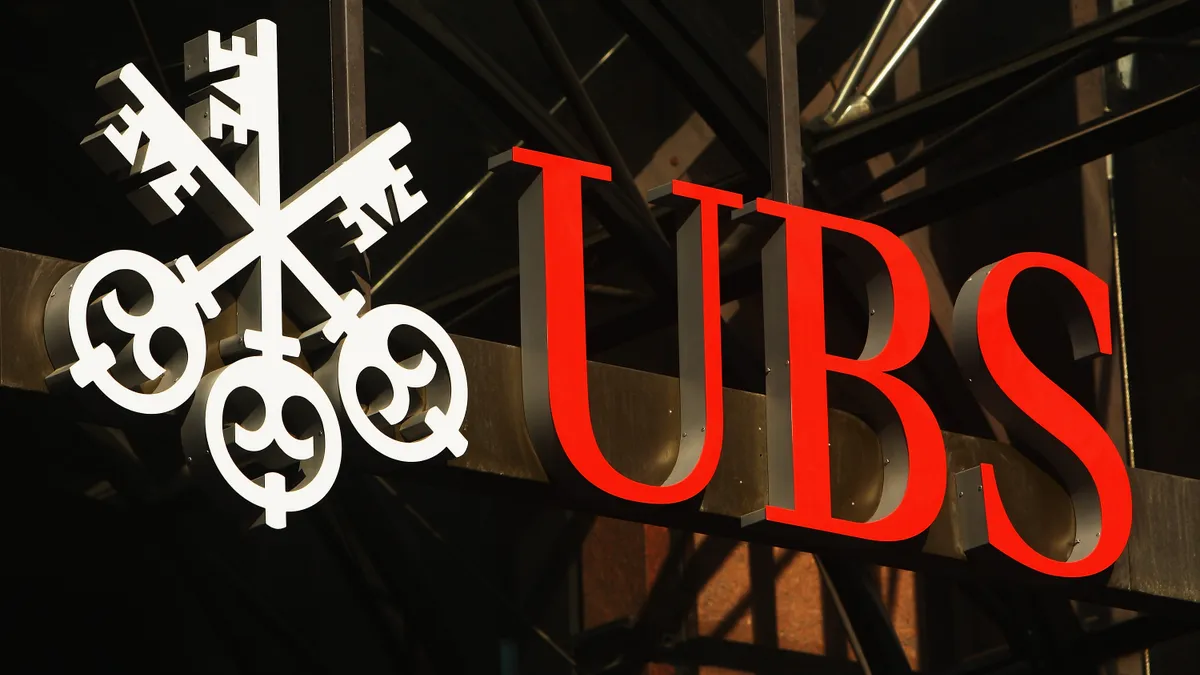Two banks — tasked with arguably the biggest restructuring jobs in the industry — provided vastly varying snapshots this week of the holiday spirit they’re showing departing (or departed) employees.
UBS has contacted hundreds of now-former Credit Suisse bankers in an attempt to claw back some of the nearly $1.4 billion in upfront cash awards Credit Suisse offered them in 2022 or this year to entice them to stay, Bloomberg reported Wednesday, citing people familiar with the matter.
Outside law firms working for UBS are threatening legal action against the bankers if they don’t comply, according to documents seen by the wire service.
Credit Suisse made the offers as an incentive to retain specific dealmakers at a time when the bank’s bonus pool was shrinking. Credit Suisse then likely did not foresee a Swiss government-orchestrated tie-up with its greatest rival.
Typically, banks can simply cancel deferred awards loaded with restricted shares if the recipients leave before the incentives vest. The cash component complicates matters.
Credit Suisse did, however, include in its offers a clause requiring employees to repay some of the bonuses if the targeted bankers were to leave within three years.
UBS isn’t looking to recoup the full $1.4 billion — rather, it’s aiming for no more than $750 million, a source told Bloomberg.
A spokeswoman for UBS declined to comment to the wire service.
Citi’s offer
Meanwhile, Citi is offering to pay some of its employees a portion of their annual bonuses early if they agree to leave the bank as part of its restructuring effort, Bloomberg reported Wednesday.
The offers are targeted, so random staffers can’t volunteer for them, the wire service reported, citing people familiar with the matter.
The early-out option may give at-risk employees an opportunity to lock down some of a bonus — which they’d typically receive in February — rather than risk staying with Citi only to find themselves out of a job and a bonus early next year.
Citi is roughly three months into a reorganization that’s set to wrap up by March. Much of the focus so far has been on weeding out excess layers of management and consolidating roles whose efforts duplicate one another.
The bank last month laid off more than 300 senior managers — amounting to a 10% cut to the layer that sits two levels below CEO Jane Fraser’s executive management team.
Another round of cuts is expected in January.
A spokesperson for Citi declined to comment to Bloomberg.
Past is prologue
It may be coincidental that both the UBS and Citi offers are hitting during the holiday season. In years past, it’s been interesting to contrast banks’ actions against those of their peers, when it comes to certain subject matter.
In 2021, as the omicron variant of COVID-19 spread — pushing many banks to allow employees in even the most office-centric roles to work remotely — the timing of such guidance became a compelling character study.
JPMorgan Chase, for example, issued its guidance Dec. 17 of that year — a Friday (incidentally, giving bankers a chance to skip town during the last weekend before Christmas). Bank of America, by comparison, issued its all-clear to work remotely Dec. 20 — a Monday (incidentally taking away the option of banks to use a weekend to travel).
To this reporter’s knowledge, the term “grinch index” hadn’t been coined in 2021. But if it had, Bank of America would have out-grinched JPMorgan, wittingly or not.
This year, the alleged threats of legal action against former Credit Suisse bankers appear to make UBS far grinchier than Citi.
But grinchiness comes down to timing and presentation: Actions always look kinder in the preventative stage. More early-outs at Citi now could mean fewer layoffs (or at least fewer forced ones) in January and March.
Prevention vs. cure
UBS is past the preventative stage. This year’s outlook at the bank has shown wild swings. UBS reported a record $29 billion in profits before tax in the second quarter, but that was followed three months later by its first quarterly loss since 2017. Any clawbacks it can gather presumably would soften the blow of a once-projected 35,000-employee cull.
Citi and UBS’s actions this week have common ground other than the backdrop of right-sizing. UBS is seeking only a portion of paid-out bonuses — just as Citi is reportedly offering a partial incentive to certain at-risk employees.
And payouts always have strings. For Credit Suisse, it was a three-year time frame attached.
Meanwhile, employees who take Citi’s offer would be allowed to keep all of their deferred stock awards, Bloomberg’s sources said. But the bankers would be expected to adhere to a “gardening leave” period, meaning they could risk losing at least some of their payout if they were to immediately take a job at a competing bank.
Image is another factor. In the Fraser era, Citi has typically shown a tolerant flexibility. It was the first of the massive U.S. banks to promote hybrid schedules. But Citi has also displayed a no-BS side. Shortly after Citi announced its restructuring in September, Fraser told employees to “get on board” the fast-moving “train” that is meant to deliver on the bank’s refocused ambitions. “Lean in, help us win with clients, help us deliver the changes, or get off the train,” Fraser said.
The takeaway might be: All it takes is a change in circumstance — for Credit Suisse, it was the UBS takeover; for Citi, TBD — for an ounce of prevention (that might look like holiday cheer) to become a pound of grinch-resembling cure.






















